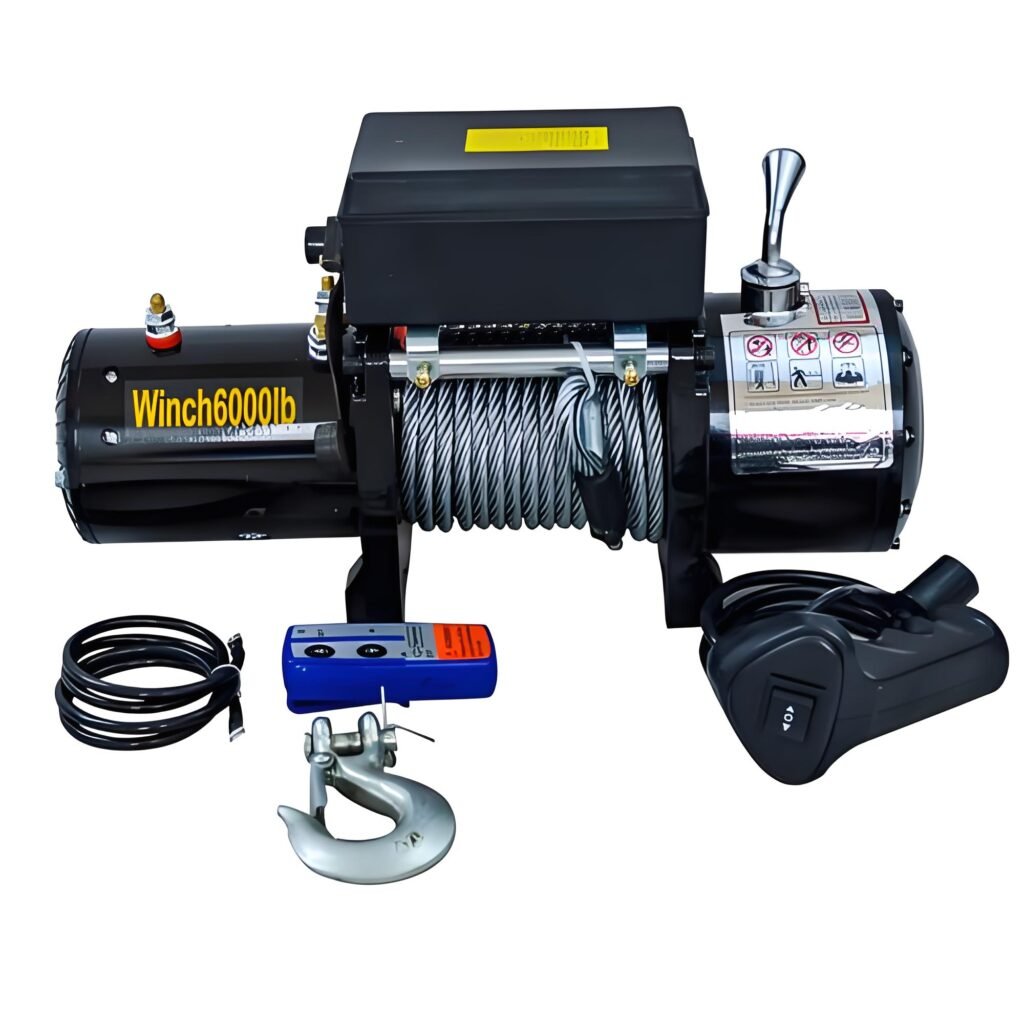When it comes to lifting or pulling heavy loads in emergencies, the electric winch is one of the most common tools. These devices are designed to operate on different voltages—typically 380V, 220V, or 110V, and in some cases even low-voltage options like 36V, 24V, or 12V for specialized applications.
Electric winches also come in various models and specifications, with different motor power ratings. Many buyers assume that the higher the motor power, the faster the winch will pull. At first glance, this seems logical—but in reality, it’s a misconception.

Motor Power ≠ Pulling Speed
The motor power of an electric winch mainly determines how much weight it can pull and, naturally, influences its price. However, motor power does not directly dictate the pulling or retrieval speed.
So, what really affects the speed of an electric winch? Let’s look at some real-world examples.
Comparing Winch Performance
- WARN XD9000
- Motor Power: 4.6 hp
- No-load line speed: 11.6 m/min
- Line speed at 9,000 lbs: 1.94 m/min
- Current: 460 amps
- Champion G9000
- Motor Power: 3.6 hp
- No-load line speed: 5.2 m/min
- Line speed at 9,000 lbs: 1.5 m/min
- Current: 280 amps
- WS 9500i
- Motor Power: 6.0 hp
- No-load line speed: 12.8 m/min
- Line speed at 9,500 lbs: 1.9 m/min
From these comparisons, it’s clear that even with different horsepower ratings, the line speed under load is largely determined by the weight of the load being pulled, not simply by the motor’s power rating.
What Really Determines Winch Speed?
The driving speed of an electric winch depends on several factors:
- Load Weight: The heavier the object being pulled, the slower the line speed will be.
- Gear Ratio: Winches designed with different gear ratios may prioritize pulling strength over speed, or vice versa.
- Motor Efficiency: While a higher hp motor can handle heavier loads, its speed performance still depends on how efficiently it transfers energy under load.
Key Takeaway for Buyers
When choosing an electric winch, don’t assume that “more power = faster speed.” Instead, focus on:
- Your required load capacity (how much weight you need to pull)
- Line speed specifications under load, not just no-load speed
- Voltage compatibility with your equipment or vehicle
- Build quality and safety features, especially if used in demanding environments
By understanding the real relationship between power and performance, you’ll be able to select a winch that best fits your needs—whether for off-road recovery, industrial lifting, or emergency operations.
